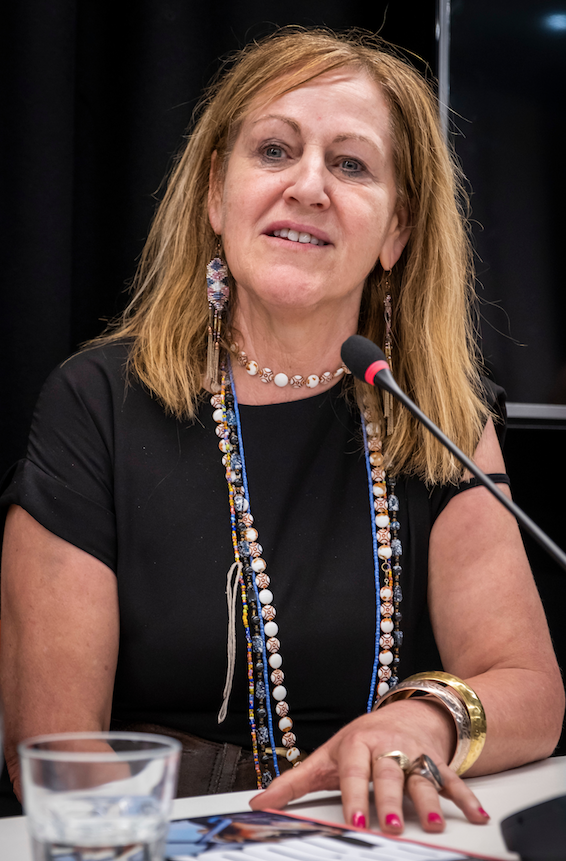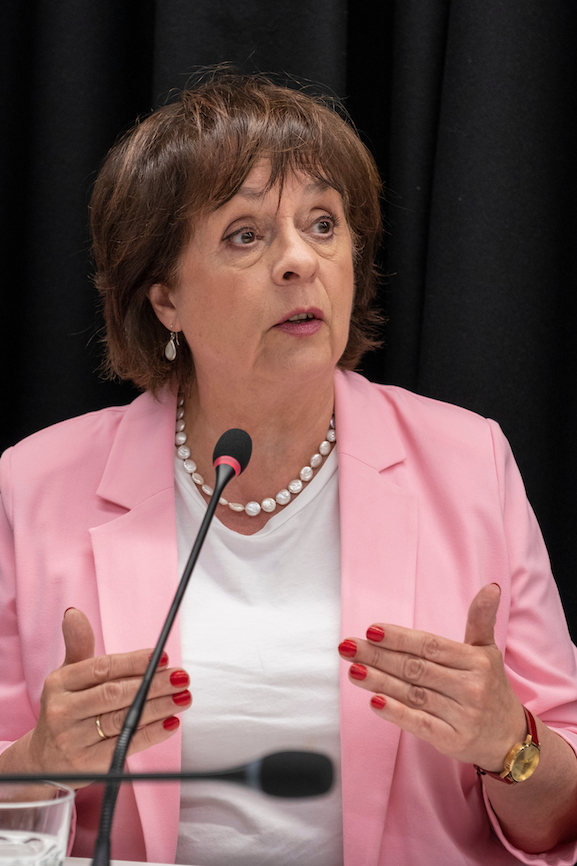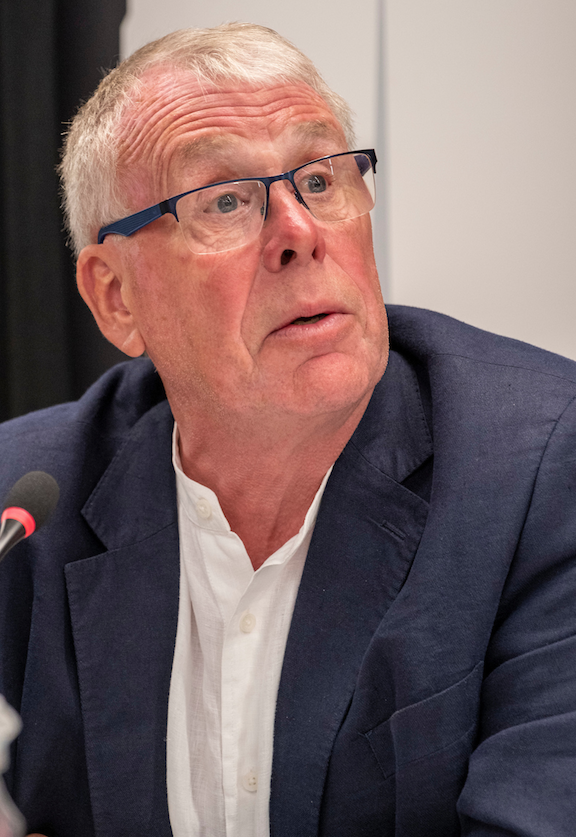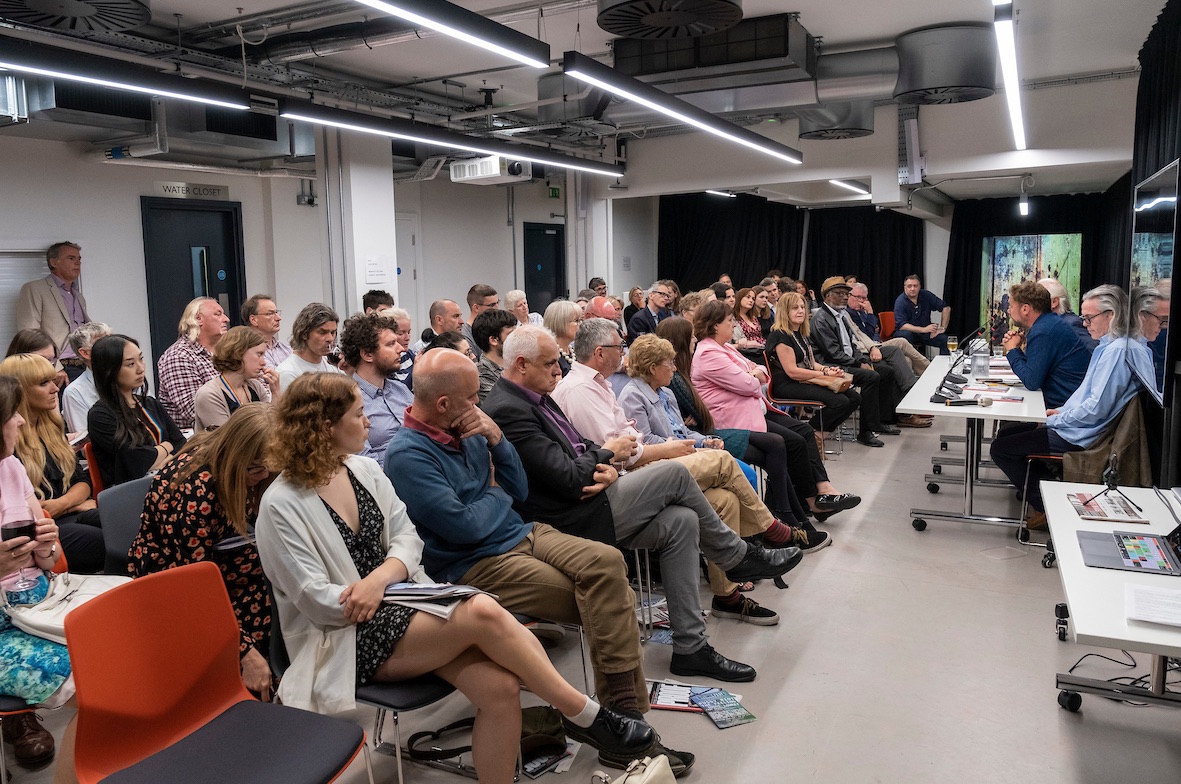The UK has an ‘obsession with imprisonment’ and needed a more considered discussion about prison reform, according to Paula Harriott of the Prison Reform Trust. As reported recently on the Justice Gap, England and Wales has the highest imprisonment rate in western Europe with more than 140,000 admissions last year.
 The former prisoner and head of prisoner involvement at the group was speaking last week at the launch of the latest edition of the Justice Gap’s Proof hosted where campaigners expressed concerns over a Boris Johnson government clampdown on ‘soft justice’.
The former prisoner and head of prisoner involvement at the group was speaking last week at the launch of the latest edition of the Justice Gap’s Proof hosted where campaigners expressed concerns over a Boris Johnson government clampdown on ‘soft justice’.
-
The event was part of the Byline Times News Club and took place at the National Union of Journalists. Other speakers included ex prison governor John Podmore, Frances Crook of the Howard League, former prisons inspector Nick Hardwick and (in a separate panel discussion) the artist Patrick Maguire and veteran crime correspondent Duncan Campbell.
-
You can buy the magazine here.
-
Photographs by Andy Aitchison.

Paula Harriott at Proof launch
Paula Harriott argued that the current prison system wasn’t fit for purpose, and the government needed to reconsider its ‘morality and humanity’ in developing a system that prevented people from re-offending. According to the Prison Reform Trust, almost half of adults (48%) are reconvicted of another offence within one year of release.
Flagging up the seemingly inevitable appointment of Boris Johnson as prime minister, Nick Hardwick, now Professor of Criminal Justice at Royal Holloway, suggested that the ‘window of opportunity’ for serious criminal justice reform had closed. Hardwick was effectively sacked as chair of Parole Board following the furore over the decision to release the Worboys.
In his column for the Daily Telegraph, the Tory MP attacked ‘the Leftist culture of so much of the criminal justice establishment’ and, in particular, slammed parole boards for being ‘slaves to political correctness’. Hardwick told the audience he had taken Boris Johnson’s attacks on liberals personally. ‘I am liberal, I don’t find that an insult,’ he added.

Nick Hardwick at Proof launch
Rather than the evidence-based policies suggested by the panel, he predicted a ‘lurch (back) to penal populism’. Ons idea that Johnson floated in a recent interview in which he attacked ‘Britain’s soft justice’ was a new requirement for all those sentenced to 14 years or more to serve their full sentence.
Such a policy would mean ‘another 4,000 people a year in prison’, predicted Hardwick. ‘The consequences of that is not merely the 4,000 people who will be directly affected, but the effect that will have on sentence inflation,’ he continued. ‘It will pull sentences longer across the board and that will push up the prison population. Do you think they’re going to pay for that increase in the prison population and pump in more staff to cope with it? I don’t think so.’
Not only are too many people going into prison but their exit ramp was blocked off, argued John Podmore. He flagged the chaos over the failed part-privatisation of probation which took place after ‘key senior people were sidelined’, giving the government the opportunity, with limited resistance, to ‘nail the coffin lid down’ on the probation services.

Frances Crook at Proof launch
Frances Crook, chief exec of the Howard League for Penal Reform, proposed a ten step plan aimed at reducing the number of people going into prisons, and maximising the number coming out. She pointed approvingly to Scotland’s recent abolition of short-term prison sentences, where prison sentences have been abolished for periods of under a year. Not only would this bring parity to sentencing policy across the whole of the UK, it would ‘save money’ and take ‘women out of the system completely’.

John Podmore at Proof launch
Crook echoed Podmore’s suggestion that we need to focus on community responses to crime, which have become ‘too long’ and are ‘poorly delivered’, with community sentences needing to be made ‘short, simple and effective’. She argued that ‘punishing’offenders didn’t work and the justice system needed to refocus so that those who have committed crimes ‘make amends’. A better system would be one that required an offender to take actions to ‘say sorry for what they have done’, focussing on compensation and apology rather than punishment.
Pipeline to prison
Paula Harriott said that society had ignored the fact that ‘imprisoning people doesn’t work’ and that it had been a ‘total failure’. She argued for a shift of focus to the causes of crime, rather than on the people who commit crime, saying that society has ‘individualised crime’ in such a way that it allows us all to avoid looking at ‘our collusion and culpability on why people are on a pipeline to prison’.
This individualisation has meant that we don’t properly focus on the fact that four out of 10 prisoners are from a black and minority ethnicbackground, or consider how to redress the inequality within the social, economic and political arenas that underpins offending and re-offending.

Paula Harriott argued that the ‘othering’ of prisoners means that most prison reform charities (with the exception of the Howard League)failed to become properly involved in the political conversation, ‘holding back’ and choosing to ‘hide behind the Lobbying Act’ (which has been accused of stifling campaigners).
Instead of this timidity, Harriott called for reform groups to be ‘courageous’, to ‘talk about the causes of crime as a way of preventing the pipeline’ and to ‘involve prisoners in the debate’. The ‘discrimination in the sector’ means that even those supportive of prison reform are reluctant to call upon prisoners to speak for themselves, concerned that they may ‘disrupt and disturb the narrative’ which the organisations have established. More prisoner voices would emphasise their humanity and add persuasive force to the arguments for reform
Flagging up the prospect of a Boris Johnson-led government with a sustained attacked on ‘soft justice’, Frances Crook, chief executive of the Howard League for Penal Reform charity, also added ominously: ‘Be afraid, be very afraid.’







